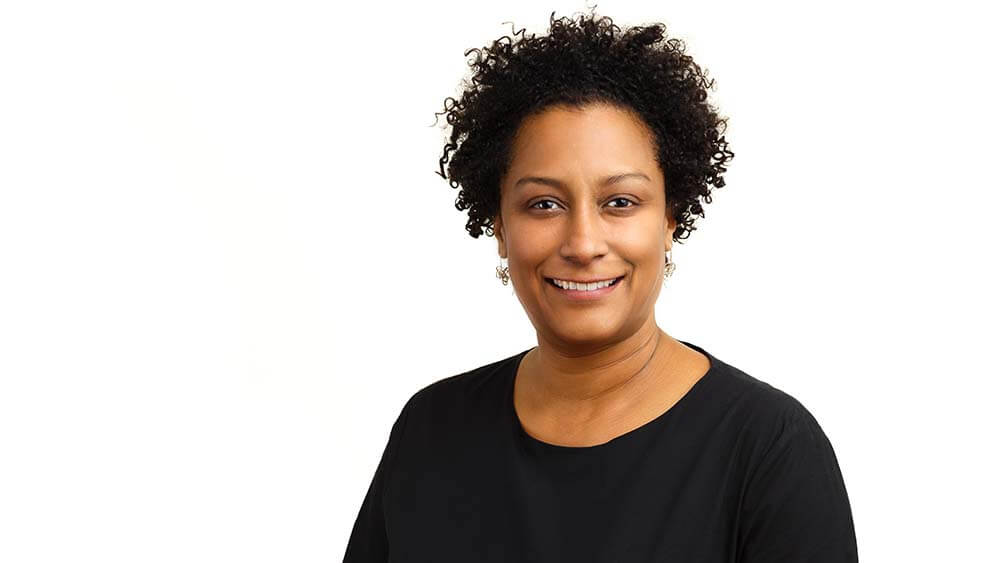
“I get excited about being in the weeds,” Melissa Cherry said. “I’m a working executive … and just really love helping bring that desire to have equity, diversity, and inclusion be part of organizations’ work to the next [level].”
If you were to look for a common denominator, underpinning all of Melissa Cherry’s work in destination and tourism marketing over the past quarter of a century, it would be her focus on telling the stories of underrepresented communities. After receiving degrees in art history and public art studies from Howard University and the University of Southern California, respectively, Cherry plied her arts background in the destination marketing world, becoming director of cultural tourism and consumer promotions at the Los Angeles Tourism & Convention Board. Cherry’s marketing and promotion work around Los Angeles arts and culture spotlighted the stories of local communities, including the LGBTQ community, and shared the heritage of Black and Latino communities.
“Neighborhood tourism was a big focus of mine,” Cherry told Convene, “and not something people thought much about. When I came into the industry, it was all about driving people to downtowns and attractions in the usual spaces. … So that was a very early part of my career — making sure as part of the leisure advertising, we were talking about the different communities that made up the city.”
Cherry’s arts background and particular lens on culture, community, and diversity have been a part of the approach she’s taken in all her roles throughout her career. Since her time in Los Angeles, she has worked for the Chicago History Museum — “telling the stories of Chicago,” she said — and Choose Chicago, where she was appointed the first senior vice president of marketing and cultural tourism and tasked with highlighting the city’s 120 unique neighborhoods. Most recently, Cherry served as chief operating officer for Destinations International, a position she has since left to break ground in a new role — as the first chief diversity and inclusion officer and senior vice president for Miles Partnership, a strategic marketing company focused on travel and tourism.
“Anybody who knows me,” Cherry said of her new role at the tourism marketing consultancy, knows that “I’m always up for a new challenge.” When she spoke with Convene in late August, she was just three days into her new position. “Miles Partnership is a company that’s over 30 years old and has over 100 clients. A lot of them are tourism boards and convention and visitors bureaus. I’m really excited that the work I’ve been able to participate in over my career [will lend itself to] this experience,” she said, adding that she intends to share the roadmap to diversity, equity, and inclusion “from a destination marketing and promotion perspective” that she’s devised during her career with clients.
“I get excited about being in the weeds,” Cherry said. “I’m a working executive, as people have described me, and just really love helping bring that desire to have equity, diversity, and inclusion be part of organizations’ work to the next [level]. I’m really excited that I’ll have the ability to focus just on that work.”
In her new role, Cherry also will be involved in Miles Partnerships’ internal DEI efforts, “because ultimately that will bleed back out through the work that we do with clients.”
As a longtime leader in destination marketing, Cherry also feels a responsibility to the industry as a whole. As meetings, events, tourism, and hospitality recover from the COVID-19 pandemic, she is particularly focused on how her industry handles equitable tourism development and investment. She wants to ensure the overlooked communities she has focused on throughout her career continue to be seen.
“I think as tourism leaders, we need to make sure that we’re prioritizing how those investments are being made and where those investments are happening physically in a city,” Cherry said. “I think it is going to be important as you look at infrastructure bills that are coming out, especially now in terms of federal investment dollars that are spread around [to aid in recovery]. That’s just a point that I think is going to be important for tourism leaders to have a voice and an active role in — to make sure that there’s that equitable distribution within communities that typically don’t get that kind of investment.”
Casey Gale is associate editor of Convene.
